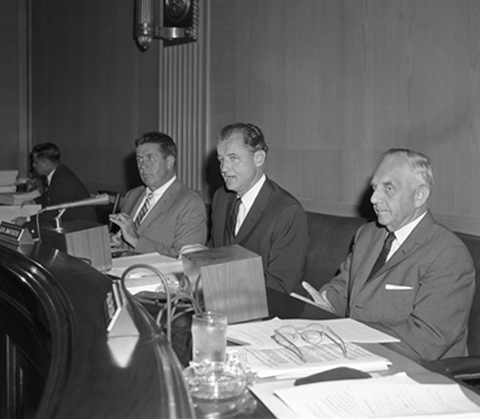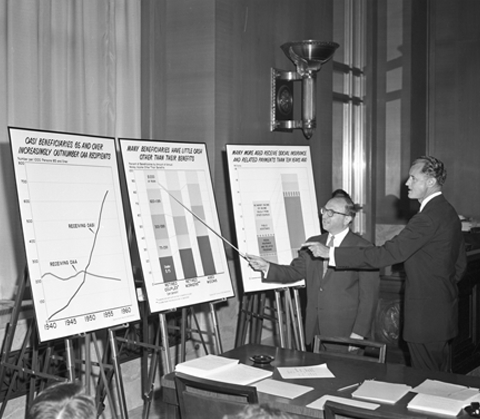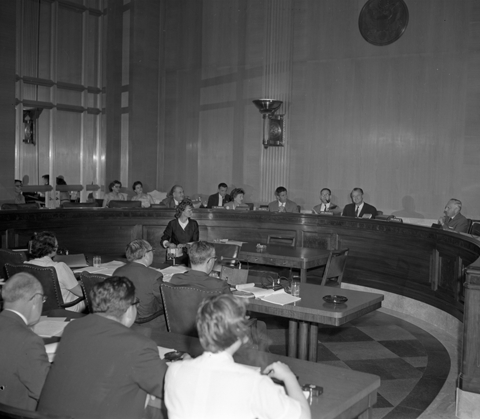The Senate Special Committee on Aging was first established in 1961 as a temporary committee. It was granted permanent status on February 1, 1977. While special committees have no legislative authority, they can study issues, conduct oversight of programs, and advance important causes.
Throughout its more than sixty year existence, the Committee has served as a focal point in the U.S. Senate for discussion and debate on matters relating to older Americans. Often, the Committee will submit its findings and recommendations for legislation to the Senate. In addition, the Committee publishes educational materials to assist older adults and operates a toll-free fraud hotline, that offers support to families victimized by con artists and track national trends.

Senator Smathers leads a hearing.
The Committee has a long and influential history. It has called the Congress' and the Nation's attention to many problems affecting older Americans and their families. At the outset, the Committee focused on unmet needs pertaining to income, health care work opportunities, and research. Medicare, Medicaid, the Older Americans Act, and other laws for seniors followed, with the Committee’s involvement. Through the years, in addition to influencing legislation, the Committee has actively engaged in oversight, with focuses on the quality of care in nursing homes, the cost of prescription drugs, and more.

The Aging Committee holds a hearing in 1961.
In recent years, the Committee has examined opportunities to strengthen Medicare, Medicaid, and Social Security, while also crusading against frauds and scams targeting seniors. Further, the Committee has led initiatives focused on Nationwide trends involving long-term care, family caregiving, and seniors’ employment opportunities.

The Aging Committee holds a hearing in 1961.
Over the years, the Committee has shaped federal policies and programs of central concern to Older Americans. As our Nation ages, the work of the Special Committee on Aging has only just begun.
Please Note: All picture accredited to the U.S. Senate Historical Office.